Reflecting on Nearly 100 Graduates of Papua New Guinea's Intermediate Field Epidemiology Training Program
Written by Callum Thirkell - PNG Intermediate Program Faculty at Field Epi in Action
Introduction
In a momentous graduation ceremony, the 8th Cohort of Papua New Guinea's Field Epidemiology Training Program (FETPNG) marked the completion of their Intermediate FETP training. This important event not only celebrated the achievements of the graduates but also highlighted the incredible progress of the program since its inception in 2013. With the ambitious aim of having at least one field epidemiologist in every Province and District, iFETPNG has made remarkable strides in advancing public health in the nation.
The 8th cohort and faculty of Papua New Guinea’s intermediate FETP at the graduation event in July, 2023.
The Journey of iFETPNG
The Intermediate FETP was first introduced in 2013 in Papua New Guinea. Over the years, it has continued to thrive, with nearly 100 individuals now having successfully completed the program. Initially developed and taught by health professionals from PNG’s National Department of Health, WHO, CDC, and later the Hunter New England Health/University of Newcastle, FETPNG's coordination and teaching responsibilities have progressively transitioned into the capable hands of the program's own graduates.
With the support of training of trainer workshops and activities, the national faculty have been increasingly adopted teaching methods that utilise highly interactive adult teaching techniques. The focus shifted towards encouraging more interaction, discussion, and drawing on the experiences of the fellows themselves to facilitate learning.
This change in approach was evident during the subsequent workshops of the Intermediate Cohort 8 program where over the three workshops, iFETP faculty (all iFETPNG graduates) undertook the vast majority of teaching and mentoring.
Cohort 8
Cohort 8 faced several challenges during their journey to completion. Political instability within the country led to travel restrictions, resulting in a delayed second workshop. Additionally, airline disruptions affected the timing of the third workshop. These delays allowed the fellows to spend more time on their public health interventions and evaluations.
The accomplishments of Cohort 8 were nothing short of inspiring. Among the highlights were the establishment of a new surveillance system for lymphatic filariasis, investigation into the reasons behind the loss of follow-up in HIV patients, and the identification and resolution of discrepancies between national and clinic surveillance systems. These achievements demonstrate the real-world impact and value of FETPNG's training.
Six fellows completed the program in June, 2023. They are embracing the chance to apply their newfound skills in their respective roles. The iFETPNG experience has equipped them with the knowledge and confidence to tackle public health challenges head-on.
Training of trainer workshops commenced in 2018, however, the curriculum has undergone progressive updates making it more interactive over many years.
Cohort 8 Graduation Speech
In a speech at the graduation held in June, Ms. Juliane Gumbat the Provincial Surveillance Officer and acting Provincial Disease Control Officer, represented the graduates, as she described their transformative journey and expressed the gratitude of the graduating cohort.
We started our first workshop, May, we came in, there were 10 of us, but we were introduced into the workshop as FETP family. When I heard that, and I know all of us my graduates, when we heard that word family, we were thinking, is this a family business? It is a public health business, but we were [a family], our chief was addressing us.
(Left) Graduation speech from Ms. Juliane Gumbat, (Right) FETP Program director Mr. Barry Ropa addressing the graduates
Mr Ropa (FETP Progam Director) was addressing [us], even our senior faculty were addressing us, “Hi family”. This family, we never understood that word, family, until yesterday. We knew what family is... We started off as of a baby. Then we grew up to adolescent, and then we became teenagers. This is the life. This is a journey that we followed.
First workshop we were lost. Second workshop, we were fed with soft food. This is the third workshop. We learn to walk, but then where did we walk too? we walk towards the finishing line? No, we walk towards that starting line. Like today, we will receive our certificates. This is not the end of the journey, but it is the start of a new journey.
To be FETP [graduates], it is a privilege for most of us because in public health there is something we call “information is power” and data is the currency of public health and FETP has proven that to us.
FETP has moulded us, has groomed us, to now where we are. We never knew where we are going. We never defined ourselves until today. We know who we are. We know where we will go. We know out there what we will do because we have done and learnt about data. We know who to get the data from, where to get the data, how to get the data, and why we are getting that real-time data. And when we get the data, we want that outcome and the impact from analysing the data.
The FETP program has taught us a lot and it has moulded us and gave us the confidence all thanks to the faculty, thanks to NDOH. Thanks to Newcastle [University]. Thanks to WHO. Thanks to our PHAs and bigger thanks to our little homes. We have a family. They supported us to come this far, but to come this far at this time, to this place, we have our engine room, our admin logistics officer, Ms. Dia to thank for that..
To conclude, again, on behalf of my fellow graduates to say a big thank you to all the faculty, Mr. Ropa, NDOH, Newcastle and for some I did not mention, our thank you goes to you as well. Thank you so much.
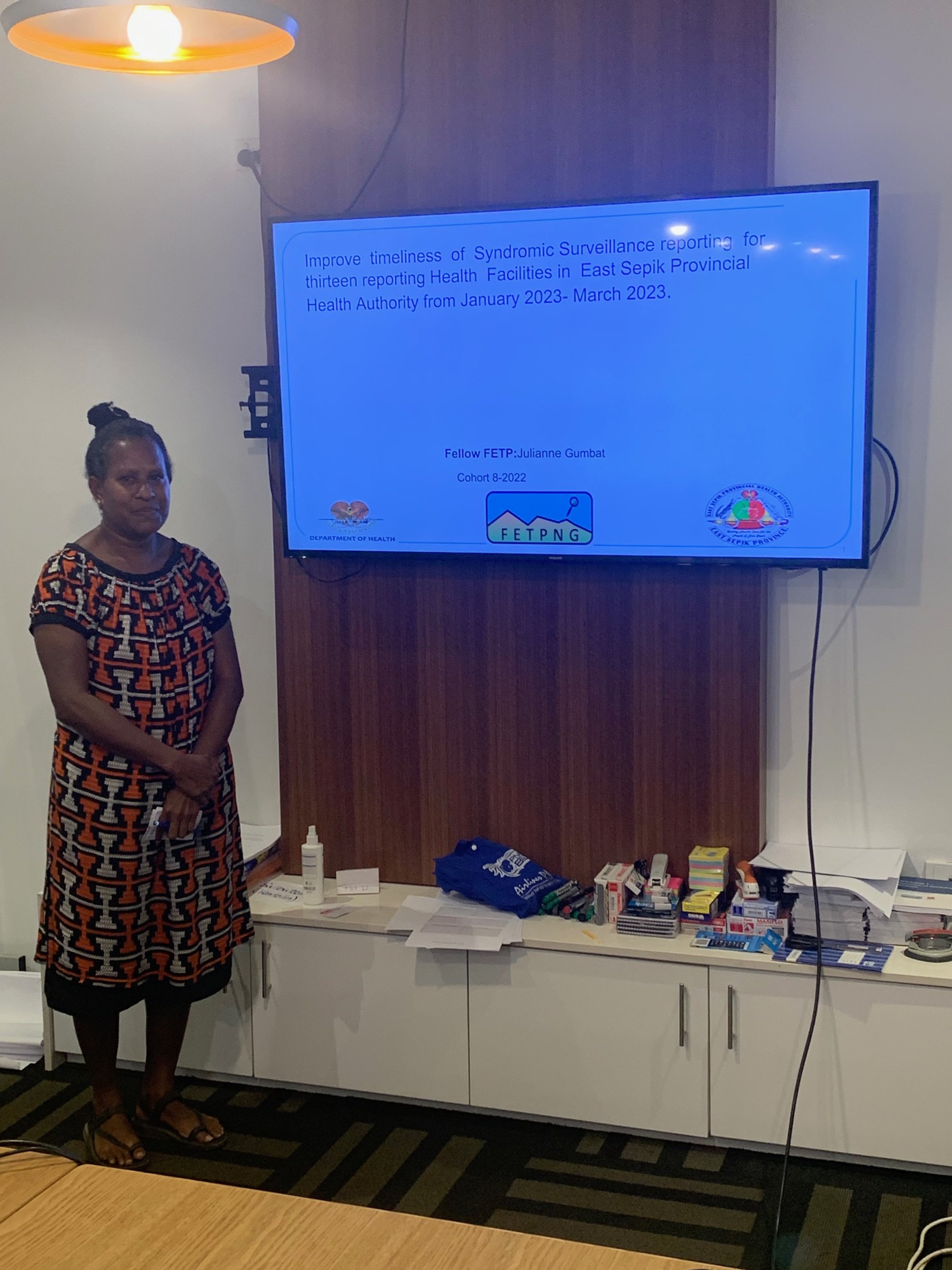
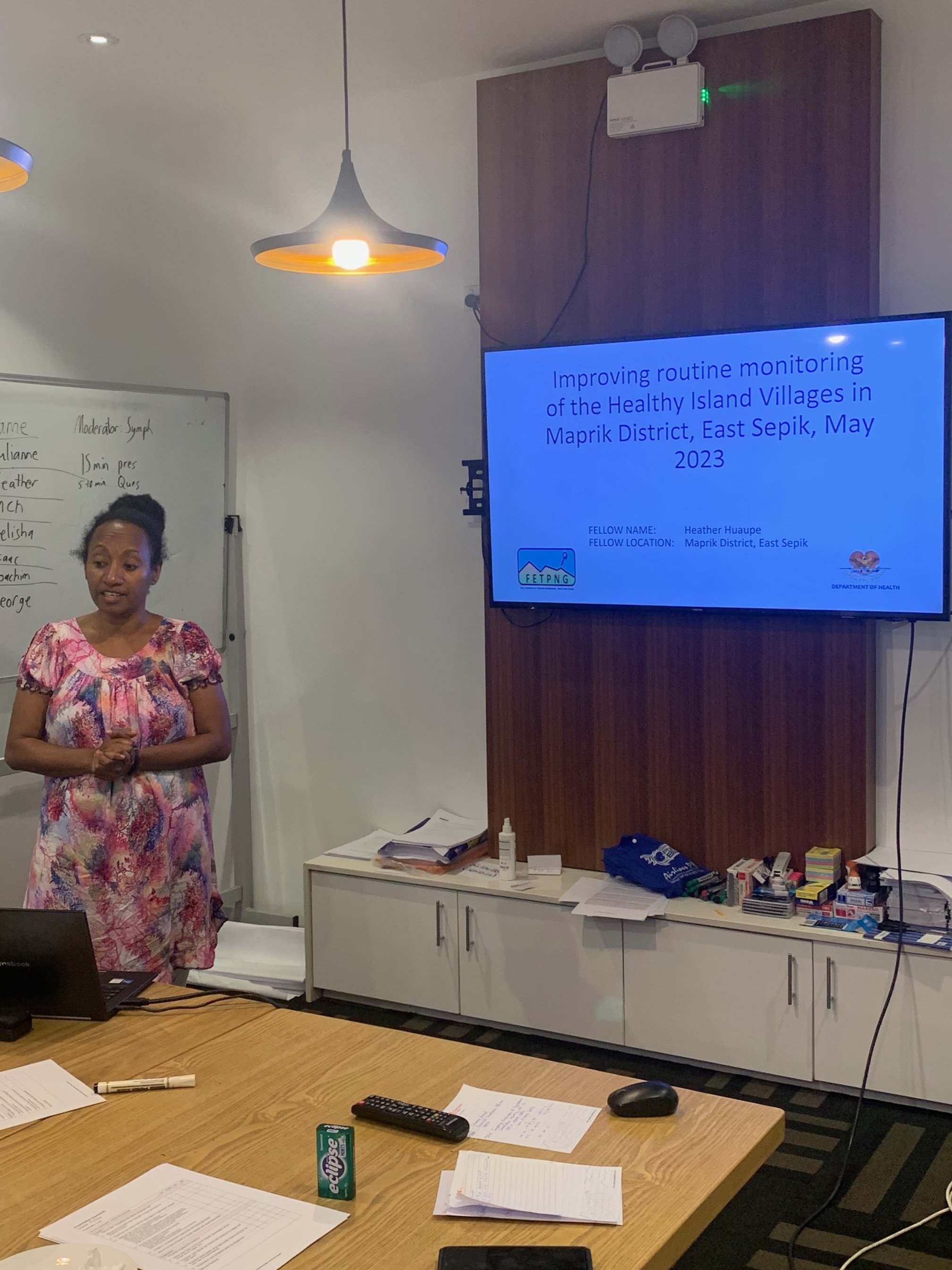

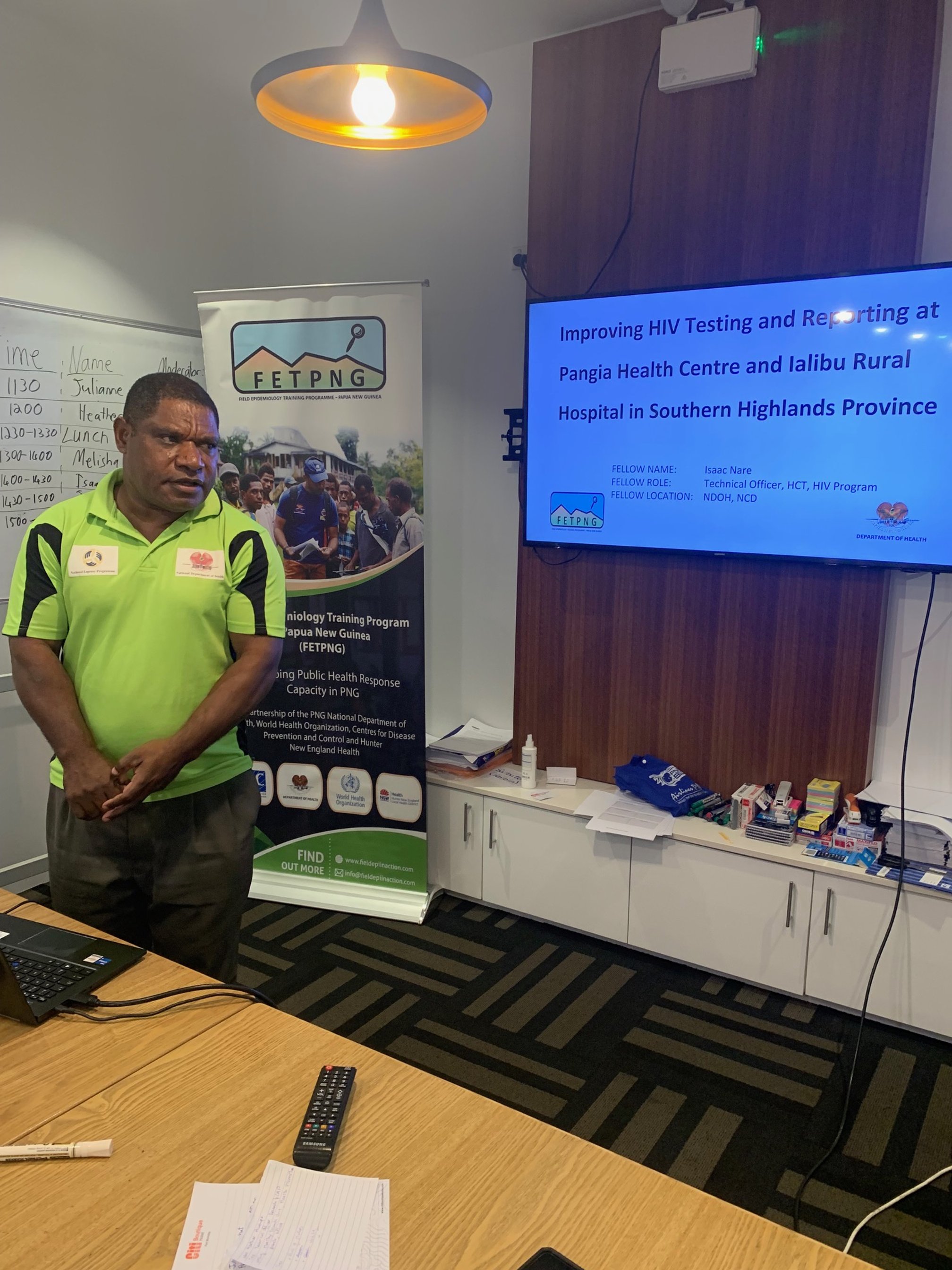
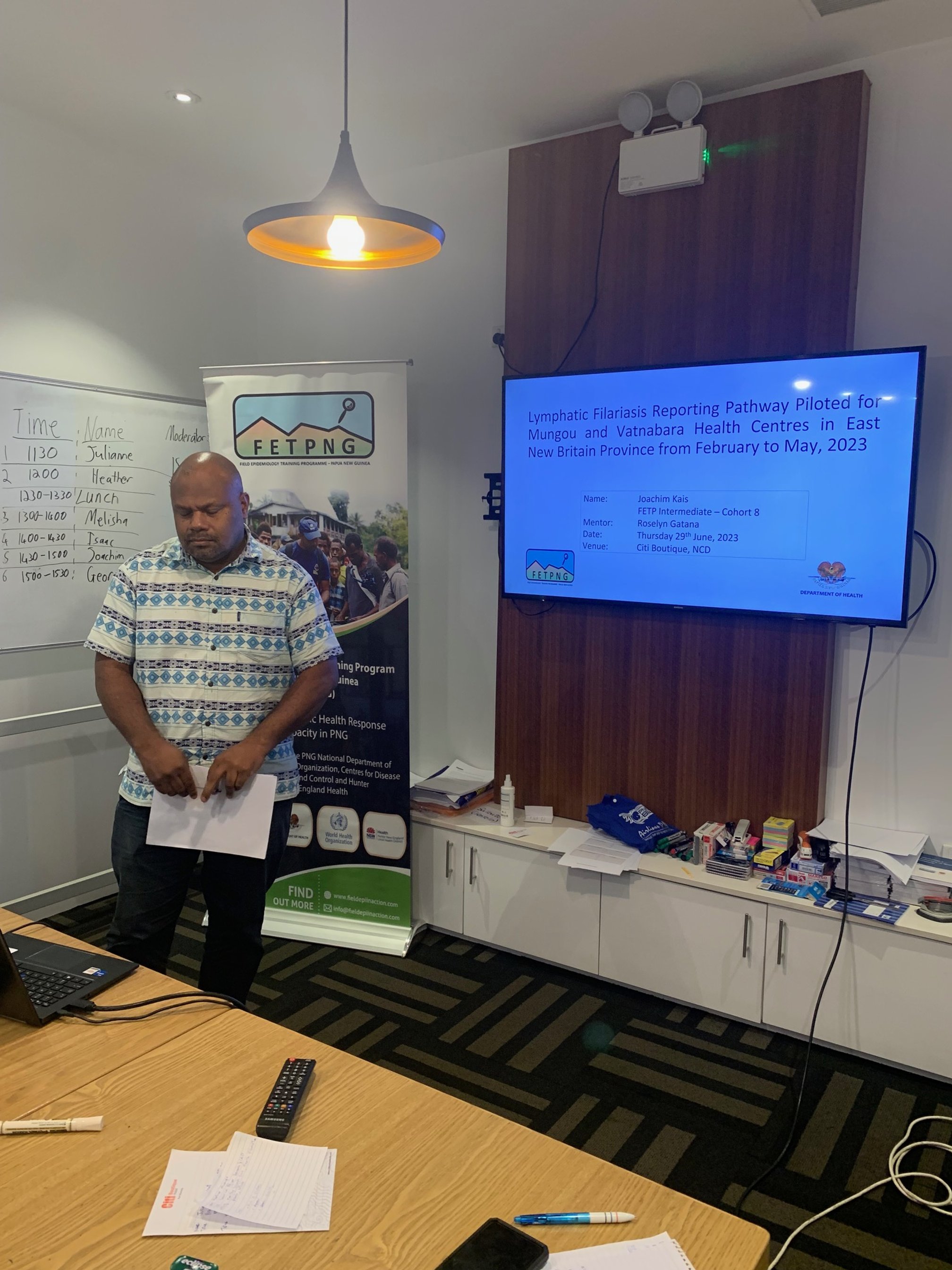
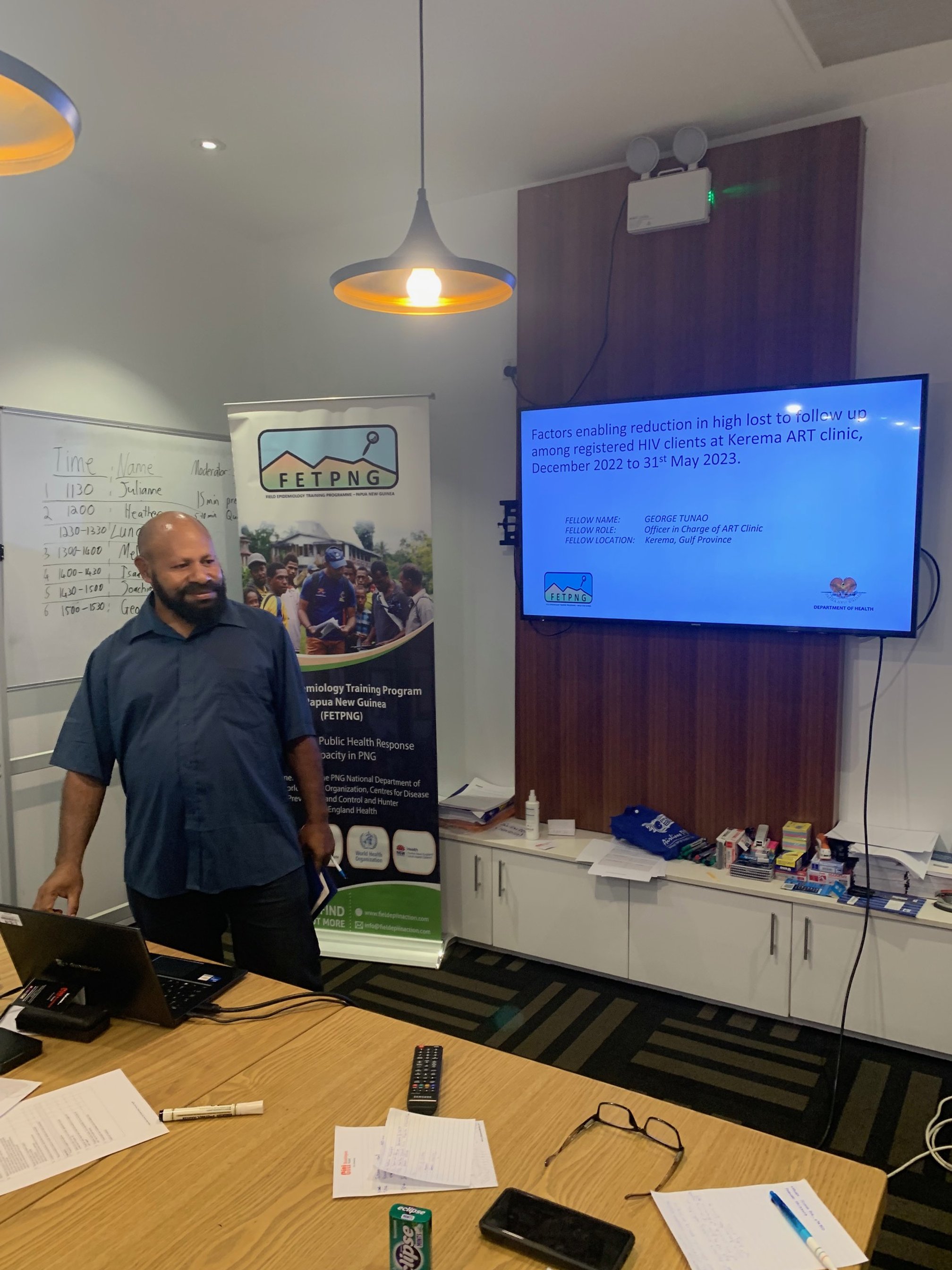
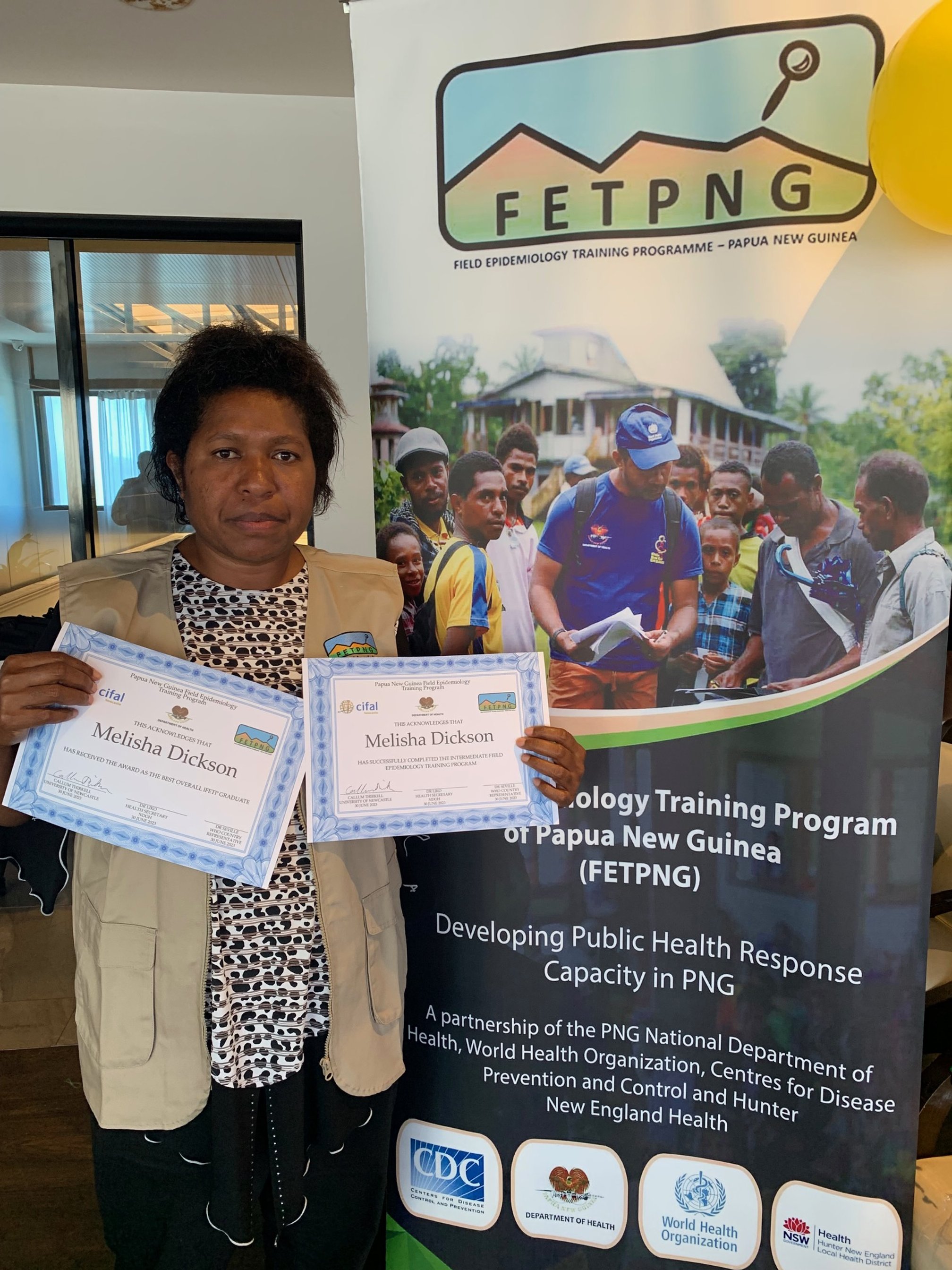
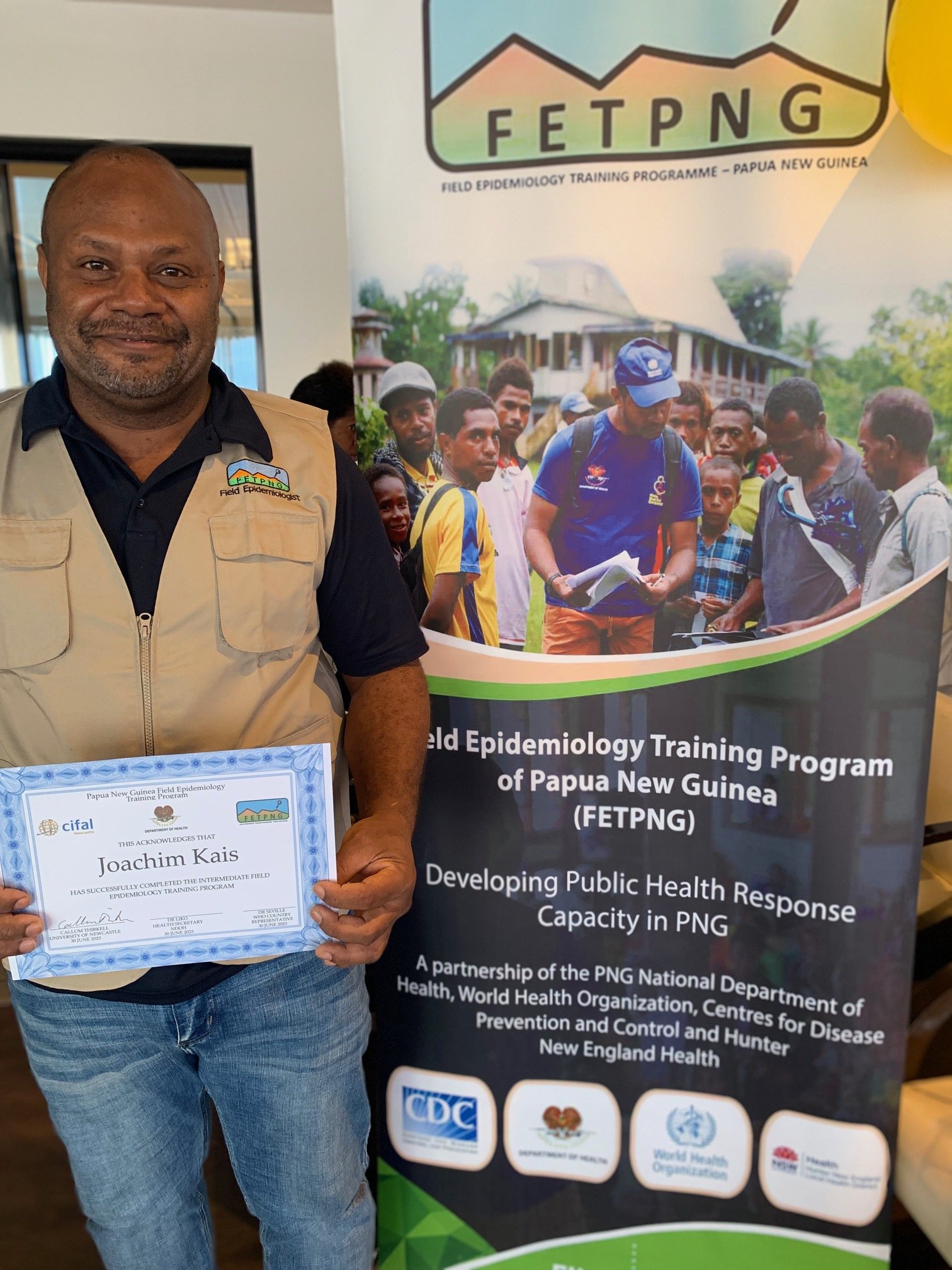
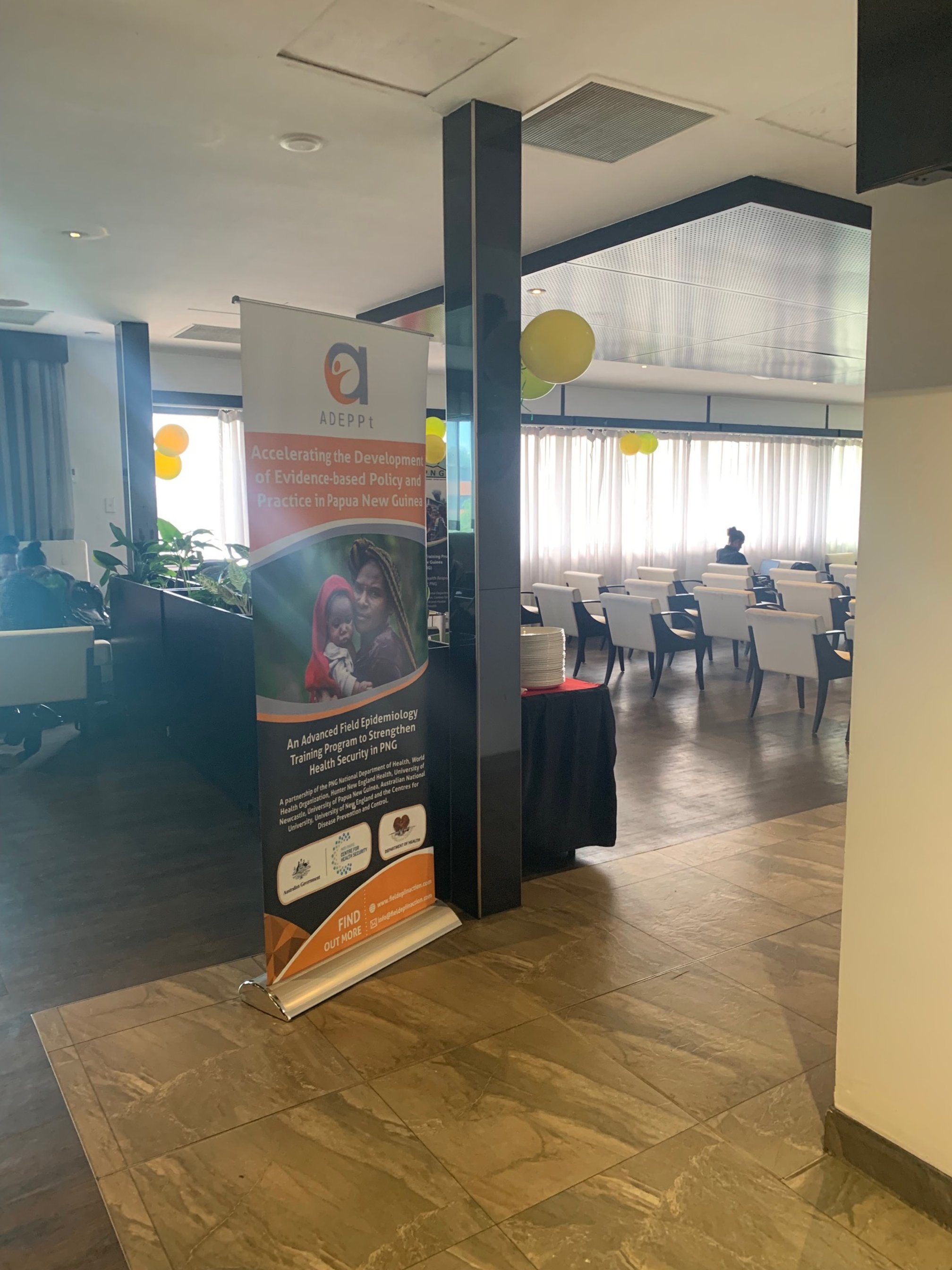
Where to Next
Completing the iFETP is not the end but the beginning of a journey for these graduates. They shared their aspirations and future plans, showcasing how the program has empowered them to make a lasting impact and how they are planning to continue to build on the projects they started during the training.
One fellow, Joachim Kais (East New Britain, Provincial Disease Control Officer) secured funding for a project aimed at expanding the surveillance and treatment of skin-related neglected tropical diseases in two districts.
Another fellow (Melisha Andrew, Hela, Provincial Disease Control Officer) took up the mantle of improving routine surveillance data quality and initiated training programs for reporting facilities. She is conducting training on the submission of weekly surveillance reports through ODK for 36 reporting officers, which hadn't been done for a considerable period of time. She also recently identified and responded to a Measles outbreak, successfully implementing the outbreak response steps learned and practiced during her FETP training. The iFETP is the first training Melisha has received since her initial clinical training as a health extension officer and she is grateful for the opportunity to learn more and utilise her skills and knowledge.
Yet another graduate (George Tunao, Kerema,, HIV Program Technical Officer) focused on enhancing the management of children with HIV and aims to implement and evaluate positive changes in their care.
A number of graduates have also been identified as junior faculty to teach both iFETP fellows and also on the One Health Frontline FETP as it continues to expand over the country.
About Field Epi in Action





